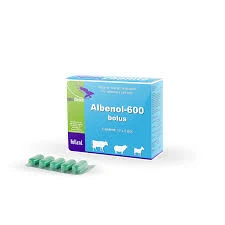- Afrikaans
- Albanian
- Amharic
- Arabic
- Armenian
- Azerbaijani
- Basque
- Belarusian
- Bengali
- Bosnian
- Bulgarian
- Catalan
- Cebuano
- Corsican
- Croatian
- Czech
- Danish
- Dutch
- English
- Esperanto
- Estonian
- Finnish
- French
- Frisian
- Galician
- Georgian
- German
- Greek
- Gujarati
- Haitian Creole
- hausa
- hawaiian
- Hebrew
- Hindi
- Miao
- Hungarian
- Icelandic
- igbo
- Indonesian
- irish
- Italian
- Japanese
- Javanese
- Kannada
- kazakh
- Khmer
- Rwandese
- Korean
- Kurdish
- Kyrgyz
- Lao
- Latin
- Latvian
- Lithuanian
- Luxembourgish
- Macedonian
- Malgashi
- Malay
- Malayalam
- Maltese
- Maori
- Marathi
- Mongolian
- Myanmar
- Nepali
- Norwegian
- Norwegian
- Occitan
- Pashto
- Persian
- Polish
- Portuguese
- Punjabi
- Romanian
- Russian
- Samoan
- Scottish Gaelic
- Serbian
- Sesotho
- Shona
- Sindhi
- Sinhala
- Slovak
- Slovenian
- Somali
- Spanish
- Sundanese
- Swahili
- Swedish
- Tagalog
- Tajik
- Tamil
- Tatar
- Telugu
- Thai
- Turkish
- Turkmen
- Ukrainian
- Urdu
- Uighur
- Uzbek
- Vietnamese
- Welsh
- Bantu
- Yiddish
- Yoruba
- Zulu
ታኅሣ . 11, 2024 10:42 Back to list
Dexamethasone Sodium Phosphate Injection 4 mg/ml for Anti-Inflammatory Treatment
Understanding Dexamethasone Sodium Phosphate Injection (4 mg/ml)
Dexamethasone sodium phosphate is a potent corticosteroid used in various medical treatments due to its anti-inflammatory and immunosuppressive properties. The injectable form, particularly at the concentration of 4 mg/ml, is commonly prescribed for the management of numerous conditions, ranging from allergies and asthma to more severe diseases like autoimmune disorders and certain cancers.
Mechanism of Action
Dexamethasone works by mimicking the effects of hormones that are naturally produced in the adrenal glands. It exerts its effects by binding to glucocorticoid receptors, leading to alterations in gene expression that ultimately result in a reduction of inflammation and modulation of the immune response. This makes it particularly effective in controlling conditions characterized by excessive inflammation and abnormal immune activity.
Indications
The indications for dexamethasone sodium phosphate injection are diverse. It is frequently utilized in treating conditions such as severe allergic reactions, including anaphylaxis; inflammatory diseases like arthritis; skin conditions such as eczema and psoriasis; and respiratory issues, especially in severe cases of asthma or COPD exacerbations. Furthermore, it plays a role in the treatment of some cancers, providing palliative care to improve the quality of life for patients suffering from malignancies.
Administration and Dosage
dexamethasone sodium phosphate injection 4 mg/ml

Dexamethasone sodium phosphate is typically administered intravenously or intramuscularly. The dosage varies significantly based on the condition being treated, the patient's response to therapy, and specific clinical guidelines. It is essential for healthcare providers to assess the individual circumstances of each patient to determine the appropriate dose. During treatment, careful monitoring is crucial, as corticosteroids can induce various side effects ranging from mild to severe.
Side Effects
While dexamethasone sodium phosphate is effective, it is not without risks. Common side effects may include increased appetite, mood changes, and difficulty sleeping. More serious effects can arise, such as elevated blood sugar levels, increased risk of infections, and adrenal suppression with prolonged use. Therefore, clinicians often strive to use the lowest effective dose for the shortest duration necessary while closely monitoring their patients.
Role in COVID-19 Treatment
In the context of the COVID-19 pandemic, dexamethasone gained significant attention as a critical therapeutic agent. Clinical trials, including the RECOVERY trial, demonstrated that dexamethasone reduces mortality in patients requiring supplemental oxygen or mechanical ventilation. This finding has underscored the importance of corticosteroids in managing severe respiratory complications associated with viral infections.
Conclusion
Dexamethasone sodium phosphate injection at a concentration of 4 mg/ml is a valuable therapeutic tool in modern medicine. Its ability to mitigate inflammation and modulate the immune system positions it as a frontline treatment for various conditions. However, given the potential side effects and the need for careful dosing, it remains imperative that healthcare professionals utilize this medication judiciously. As research continues to evolve, so too will our understanding and application of dexamethasone, particularly in emerging health crises such as COVID-19, demonstrating the dynamic nature of medical therapeutics.
-
Guide to Oxytetracycline Injection
NewsMar.27,2025
-
Guide to Colistin Sulphate
NewsMar.27,2025
-
Gentamicin Sulfate: Uses, Price, And Key Information
NewsMar.27,2025
-
Enrofloxacin Injection: Uses, Price, And Supplier Information
NewsMar.27,2025
-
Dexamethasone Sodium Phosphate Injection: Uses, Price, And Key Information
NewsMar.27,2025
-
Albendazole Tablet: Uses, Dosage, Cost, And Key Information
NewsMar.27,2025













